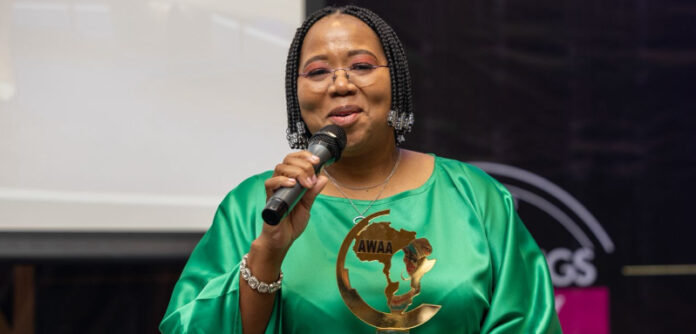Former Afrika Mayibuye Movement deputy president Nolubabalo Mcinga has resurfaced under an embryonic movement that is calling for South Africans to reject a proposal to establish a commission of inquiry into black poverty.
The statement lands barely weeks after Mcinga was removed as first deputy president, triggering a quiet exodus of supporters who have since asked her to lead a new yet-to-be-named movement.
“We categorically reject this call,” Mcinga said in the press release issued this week. She argues that commissions, hearings and political paperwork have never liberated the black poor.
Processes to protect elites
According to the statement, the proposed commission risks becoming “yet another bureaucratic process that produces reports while leaving communities unchanged”.
Mcinga said the commission appears revolutionary on paper. Yet it risks consuming time and resources without tangible outcomes.
She sharply contrasted the urgency used to launch the Zondo Commission with the slow, neglected pace of poverty interventions.
“The same parliament that rushed to establish the Zondo Commission in a weekend, and the same Presidency that found billions for state capture inquiries, acted because those processes protected elite political interests,” read the statement. “Yet when it comes to black poverty, we cannot afford another commission that creates the appearance of action without real change.”
No benefit to black child
She added that “the black child in QwaQwa will not be rescued through hearings, submissions or theoretical debates”. Mcinga argued that liberation demands direct intervention and structural change, not “symbolic bureaucracy”.
Her camp insists that opposing the proposed commission does not mean opposing the low-income earners. It is rather opposing the “ongoing cycle of empty political processes that continuously fail the [low-income earners]”.
“We choose action over administration. We choose liberation over lengthy reports. And we choose the people over political performance,” Mcinga declared.
Responding to questions about the term “we”, Mcinga said it refers to a civil society collective. One that has voluntarily aligned behind her after her removal from Afrika Mayibuye Movement.
“They asked me to lead them,” she clarified. “We are building a movement focused on real action, not bureaucracy. We are community members, youth, students, elders, activists and ordinary citizens who want real change. Not endless commissions.”



